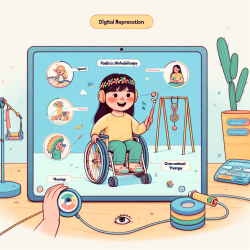Parental depression is a significant factor that can affect the mental health of children. Recent research titled "Parental Depressive Symptoms, Parent Attributional Style, and Child Coping as Predictors of Depressive Symptoms in Children of Parents with Anxiety or Mood Disorders" sheds light on this complex relationship. This study emphasizes the importance of understanding how parental mood disorders can influence children's coping strategies and their overall mental well-being.
The Study's Key Findings
The research conducted on a sample of Chinese children aged 5-12 years whose parents were diagnosed with anxiety or mood disorders revealed several critical insights:
- High Levels of Depressive Symptoms: Children of parents with anxiety or mood disorders exhibited high levels of depressive symptoms.
- Attributional Style Matters: Parents with an optimistic or neutral attributional style reported fewer depressive symptoms in their children compared to those with a pessimistic style.
- Coping Strategies: Children's disengagement coping strategies were positively associated with reports of depressive symptoms. Interestingly, engagement strategies did not show the expected negative association with depressive symptoms.
Implications for Practitioners
The findings from this study highlight the need for practitioners to focus on early identification and intervention for both parents suffering from depression and their children. Here are some actionable steps practitioners can take:
- Encourage Open Communication: Facilitate open discussions between parents and children about emotions and mental health to reduce stigma and encourage seeking help.
- Focus on Attributional Styles: Work with parents to develop more optimistic or neutral attributional styles, which can positively impact their children's mental health.
- Coping Mechanism Education: Educate children on effective coping strategies that are tailored to manage the specific stresses associated with having a parent with a mood disorder.
- Create Support Networks: Establish support groups for both parents and children to provide a community where they can share experiences and coping strategies.
The Path Forward: Further Research Needed
This study opens doors for further research into how cultural contexts influence the parent-child dynamic in cases of parental depression. Understanding these nuances can help tailor interventions more effectively across different populations.










